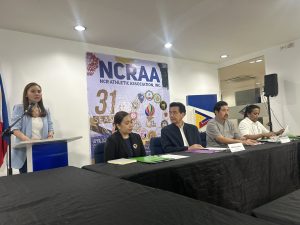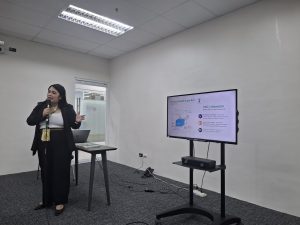
DHSUD Secretary Jose Rizalino Acuzar signs the Planado commitment wall, signifying his commitment to ensure the compliance of all local government units to update their CLUP and PFPFP based on Climate Disaster Risk Assessment and the digitalization land use planning processes, July 11.
In a bold move to address persistent gaps in land use management and urban planning, the administration of President Ferdinand R. Marcos, Jr. has launched the “Plan and Do” (PLANADO) Program, an initiative aimed at creating sustainable, resilient, and inclusive communities across the country.
Launched early 2024, under the leadership of Secretary Jose Rizalino Acuzar of the Department of Human Settlements and Urban Development (DHSUD), PLANADO seeks to eliminate the backlog in Comprehensive Land Use Plans (CLUPs) and Provincial Development and Physical Framework Plans by 2028.
The program is being implemented through the department’s Environmental Land Use and Urban Planning and Development Bureau. PLANADO aligns with the Bagong Pilipinas vision of the Marcos administration, prioritizing smart, green, and future-ready urban development.
It emphasizes the integration of modern technology and data-driven solutions to optimize land use, streamline planning processes, and ensure efficient urban governance.
Modernizing urban planning
Undersecretary Henry Yap, who directly oversees PLANADO, described it as more than just an administrative reform.
“This is a transformative initiative designed to digitalize and modernize urban planning processes to create cities and communities that are resilient to climate risks, environmentally sustainable, and socially inclusive,” Undersecretary Yap said.

Urban planners, policymakers and national government agencies in NCR join the call to work hand-in-hand in addressing the gaps in the urban development sector by signing the Planado commitment wall.
Experts view PLANADO as a timely intervention amid the increasing pressures of rapid urbanization, environmental degradation, and insufficient infrastructure planning.
These challenges have long hampered the growth and development of Philippine cities and provinces, and PLANADO is expected to address them through strategic urban governance and resource-efficient development practices.
The program also aims to foster collaboration among local government units, urban planners, and stakeholders to ensure consistent and well-coordinated planning efforts nationwide.
As the Marcos administration approaches its mid-term mark, PLANADO stands out as one of its flagship accomplishments in governance, signaling a firm commitment to systematic, sustainable, and innovative urban development policies.
If fully implemented, PLANADO has the potential to transform the country’s urban landscape, setting the stage for well-organized, future-ready cities and provinces across the archipelago. (PTV)



